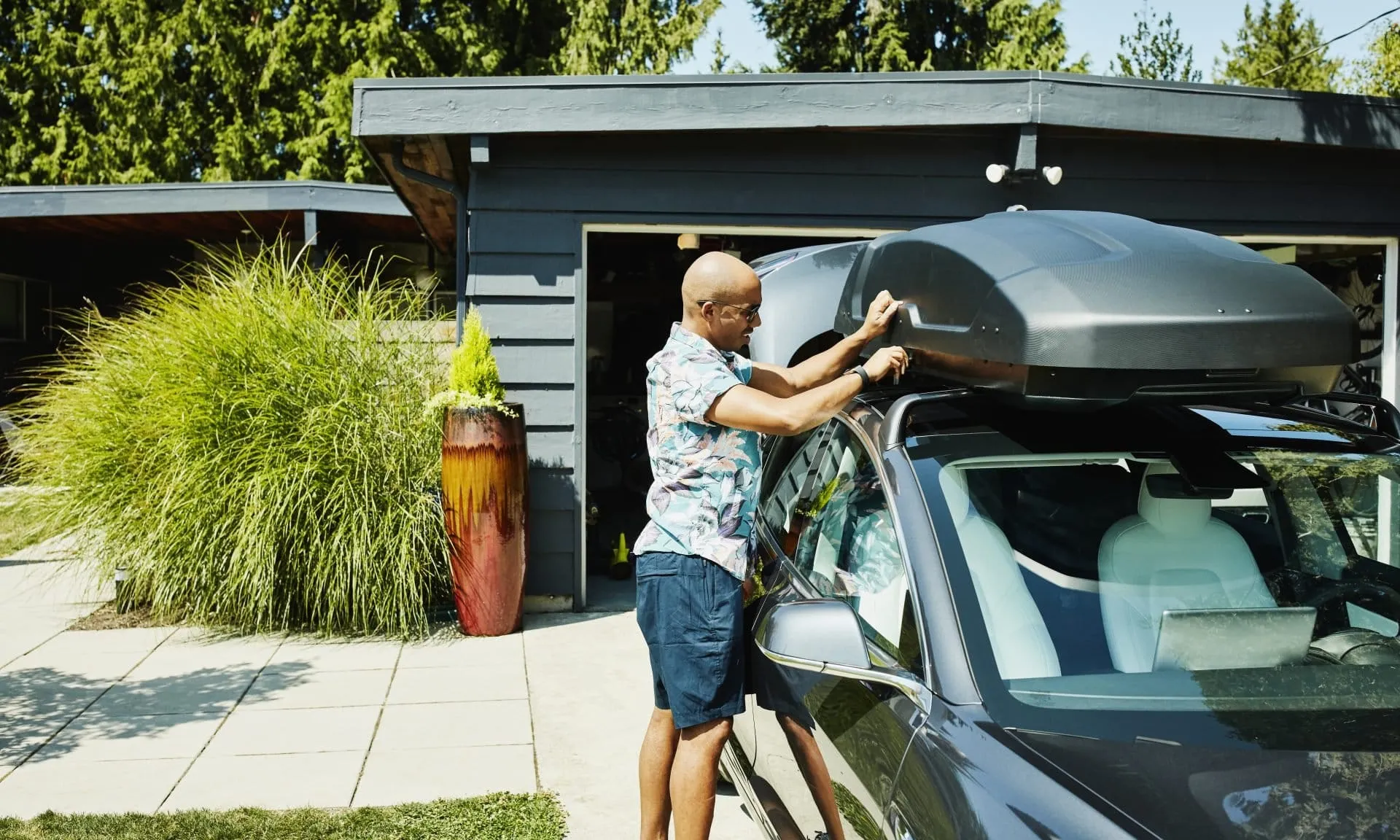Are You Overpaying for Your Auto Insurance?The Shocking Truth About U.S. Auto Insurance Costs
Did you know that the average American spends more than $1,500 a year on auto insurance? That's a lot of cash, right? But here's the kicker—many drivers don't even realize they might be paying way too much for coverage. In this article, we’re going to uncover how auto insurance premiums are calculated, the warning signs that you might be overpaying, and how you can start saving right away. Spoiler alert: it’s easier than you think!If you follow the recommendations, you may be able to Save to car insurance under $50/month

A lot of drivers don’t realize they’re paying more for auto insurance than they need to. With a little homework, you could be saving big on your premiums.The first thing to look at is the average car insurance premium,Here’s how different traffic violations can impact rates. The rates below are for 35-year-old drivers with good credit and full-coverage insurance.
How Your Auto Insurance Premiums Are Calculated
First, let’s break down how auto insurance companies figure out how much you should pay. Spoiler: it’s not just based on your car's color!
- What Affects Your Premium?
- Age: Younger drivers, especially teens, tend to pay higher rates because statistically, they’re riskier to insure.
- Driving History: A spotless driving record? Great! Higher chances of lower rates. But get into an accident or get a speeding ticket, and guess what? Your rates could skyrocket.
- Vehicle Type: Drive a sports car or a luxury vehicle? You might pay more. SUVs and sedans generally come with lower premiums.
- Location: Living in a busy city or a high-traffic area usually means higher premiums. Rural areas tend to be cheaper.
- Other Things That Can Raise Your Premium:
- Credit Score: Yep, your credit score affects your insurance rates! Bad credit can lead to higher premiums.
- Claim History: If you've filed a lot of claims, you might see your rates increase.
- Common Myths: You might think you’re stuck with whatever your insurer gives you, but nope, that’s not true! You can always shop around for better deals (Compare car insurance)or negotiate for a better rate.

How to Tell If You’re Overpaying
So, how do you know if you're paying too much for your insurance? Look for these red flags:
- Haven’t Reviewed Your Policy in Ages: If you haven’t gone over your policy in a year or more, you could be missing out on discounts or cheaper rates.
- Big Life Changes: Did you move to a new city? Changed jobs? Got a new car? Life changes affect your insurance. If you haven’t updated your policy, you might be paying more than you should.
- Missed Discounts: Some discounts are easy to overlook, like:
- Good Driver Discounts: If you haven’t had an accident in years, you might qualify for a break.
- Bundling: Do you have home or renters insurance? Try bundling it with your car insurance for a better deal.
- Sticking with the Same Insurer: Been with the same insurance company for years? Loyalty’s great, but insurance companies sometimes charge long-term customers higher rates. It never hurts to check what other providers are offering.
How to save on car insurance
If you’re wondering how to get cheap car insurance, here are six things you can try:
- Compare quotes from multiple insurers. Use car insurance comparison tool to easily shop for cheap auto insurance online. You may find that you already have the best car insurance deal, but prices can change, so check roughly once a year.
- Ask for discounts. You could save money from car insurance discounts you’re not taking advantage of. For example, maybe you work from home and don’t drive much. Mention that and you might get a low-mileage discount. Other common discounts are given for bundling car insurance with homeowners insurance, insuring multiple cars on the same policy and being a student.
- Cash in on major life changes. Certain life events could translate to cheaper car insurance, so shop for quotes whenever something major changes in your life. For instance, many companies offer a lower rate for married couples or domestic partners. Or perhaps you moved to a suburb with lower accident and crime rates. Even if you moved to a more expensive area for car insurance, shopping around can help you get cheaper coverage.
- Raise your deductible. The higher your car insurance deductible, the more you pay out of pocket before insurance pays for a covered claim. The upside is that by raising your deductible, you’ll usually be able to lower your premium. Just make sure you have enough money set aside to cover the higher deductible if you ever get in an accident.
- Revisit quotes after your driving record improves. Shop for cheap auto insurance quotes online three to five years after any accidents, tickets or moving violations. They may have dropped off your driving record.
- Reconsider the car you drive. The type of car you drive affects how much you pay for auto insurance. For example, new and expensive cars tend to cost more to insure than older or less expensive cars, among other factors. Check out NerdWallet’s analysis of the cheapest cars to insure to see if your vehicle made the list.

Why You Should Review Your Policy Regularly
Alright, here’s the deal: your auto insurance isn’t something you should set and forget. Regularly reviewing your policy can help ensure you’re not overpaying.
- When to Review Your Policy:
- Once a Year: Set a reminder to review your policy annually. Rates change, and so do your needs.
- After Big Life Changes: If you move, get a new job, or buy a new car, your insurance needs might change too.
- How to Do a Quick Policy Check:
- Key Areas to Look At: Make sure you’re paying for the right amount of coverage, and check if there are any discounts you’re missing out on.
- Ask Your Agent: Don’t be afraid to ask your agent if there are better options or any new discounts available.
- Shop Around: Always compare your rates with other companies to make sure you're getting the best deal.
- Why It Pays to Be Proactive:
- You could save money.
- Ensure your coverage still meets your needs.
- Keep your rates competitive.
Conclusion
In the end, overpaying for auto insurance doesn’t have to be your reality. With just a bit of effort, you can lower your premiums and free up some cash for other important things in your life.
- Call to Action: Take a minute to review your current insurance policy, get a few quotes from different companies, and see if there’s room for savings. You’ve got nothing to lose, but a lot to gain!
- Final Thought: Saving money on auto insurance might just be the easiest financial win you can grab today. So, take action, and watch those extra bucks pile up!
Additional Search
Save money on car insurance
Auto Insurance Comparison Tool
Apps to Help Manage Your Insurance
Related Issues
Analysis of the Advantages and Discount Policies of Auto Insurance in the United States: How to Maximize Savings on Premiums?
Auto insurance is an essential expense for car owners in the United States. However, by carefully selecting insurance companies, products, and various discount policies, consumers can significantly reduce their premium costs. According to Statista, as of 2024, the average annual auto insurance premium in the U.S. is approximately $1,682. However, by utilizing various discounts and strategies, some drivers can save 20%-40% on their premiums. This article will explore the advantages of auto insurance in the U.S. and detail the available discounts to help consumers maximize their savings.
Unlock the Secrets of Auto Insurance: How to Choose the Right Coverage to Save Big
Car insurance can be a significant expense for many drivers, but with the right approach, you can minimize your premium while still securing the coverage you need. In this guide, we'll explore the details of auto insurance coverage options, provide tips on choosing the best plan, and reveal money-saving strategies that can lower your premiums without compromising your protection.Search For "Low Cost Car Insurance Quote"
How to Find Affordable Car Insurance for Used Cars
When purchasing a used car, one of the most important aspects to consider is the cost of insurance. Although buying a used vehicle can save you money upfront, the cost of insuring it can vary widely depending on factors such as the car’s age, make, model, and your personal driving history. With the right approach, however, you can secure affordable car insurance that provides the necessary protection without breaking the bank. In this article, we’ll explore how to choose the best coverage for your used car and provide insights into potential insurance prices.